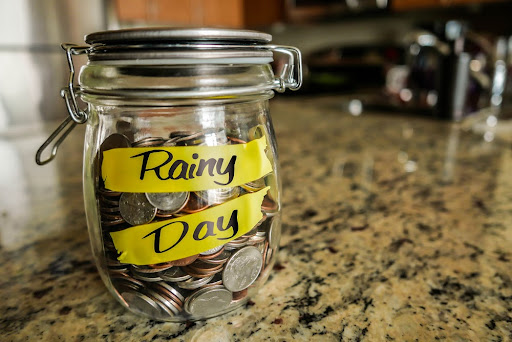We’ve probably all heard the idiom about saving for a rainy day, and if we were smart – that’s exactly what we would all be doing! For many of us, saving money is no easy task, but the truth is that it needs to be done by everyone; especially those with a mortgage. Having a 3-month mortgage reserve and a plan that includes a 3-month emergency fund is a smart move for any homeowner from a first-time buyer to those looking for retirement homes.
And while many of us think it will never happen to us (pandemic anyone?), we all know too well that you cannot predict an illness, a layoff, or another catastrophic life event. The key to overcoming these sometimes tragic events is to be prepared with a financial backup plan so that you and your family feel secure no matter what happens.
Here are some tips from the finance gurus at Mid-America Mortgage to help you build a 3-month mortgage reserve so that when life happens, you can still go home.
What is a Mortgage Reserve?
A mortgage reserve is cash (or easy access to cash) that has been designated as funds meant to pay your mortgage payments. Typically, defined to cover a determined number of months, a mortgage reserve is there as a financial backup plan in the event that you are unable to make your mortgage payments for any reason.
To determine just how much you need to have in your 3-month mortgage reserve savings account, simply multiply the amount of your monthly mortgage by three, and you will get the amount needed. For example, if your monthly mortgage payment is $1000, you would need to deposit $3000 into your reserve account to sustain your monthly payment for three months.
Do I Need a 3-Month Mortgage Reserve as a Financial Back-Up Plan?
Finance experts suggest that you start saving money to build a 3-month emergency fund which includes a 3-month mortgage reserve. To purchase a home, you typically don’t need to have a mortgage reserve. Your lender will approve your home loan based on your job, credit rating, and your ability to make the monthly payment.
If you are a home buyer that has a credit score lower than 660, are self-employed, or are in the market to purchase rental properties, a mortgage reserve may be required in order to approve the home loan. The home loan experts at Mid-America Mortgage can advise you about the best type of loan for your unique situation, the property you want to buy, and whether you will be required to have a mortgage reserve. The attached graphic includes information on how many months of reserve different types of loans will require, as well as details about how many months of reserves may be required depending on the type of property you are purchasing.
Types of Mortgage Reserves to Consider
When it comes to saving money, there are a variety of different types of mortgage reserves to consider. Here are some of the most popular types of savings accounts.
Types of Mortgage Reserve Accounts
- Checking or savings account
- Trust
- Stocks or bonds
- CDs
- Cash value of a vested life insurance policy
- Vested money from an IRA, 401K, or other retirement savings account
3 Ways to Build a Mortgage Reserve
- Plan to put aside a fixed amount of money each month from your income
- Cut back on frivolous spending and do away with unnecessary expenses and use the extra money to add to your mortgage reserve account
- Consider purchasing a certificate of deposit (CD), which is a great investment option to help secure your mortgage reserve
Be Prepared with a Sound Back-Up Financial Plan
Expect the best but prepare for the worst by saving money for a 3-month emergency fund that includes a 3-month mortgage reserve. Not only are reserves a smart idea for any homeowner, but they may also be required by your lender depending on your financial situation. Contact Mid-America Mortgage for more information about starting your 3-month mortgage reserve account today.



